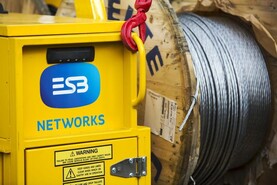Aside from the collapse of politics in Northern Ireland for almost three years and the lengthy public inquiry that followed, one of the legacies of the Renewable Heat Incentive scandal, often referred to as the ‘cash for ash’ scandal, was that it brought effective renewable energy policy making in the Republic of Ireland to a standstill.
Since the debacle erupted in Northern Ireland, substantive new policies on renewable energy in the Republic of Ireland have been few and far between, with ministers and politicians fearful of recreating the mistakes made north of the border.
As it stands today, Ireland has no meaningful policy on supporting solar PV’s and micro generators of solar electricity for the national grid, nor does it have any policy in place to support the development of a renewable biogas industry.
Opportunities
There are huge opportunities for Irish farmers in this space, not only to diversify their business into energy production, but also to lower the carbon footprint of Irish agriculture. Yet repeated calls and lobbying in this area have been met with inaction by the Government, despite the publication of its much-hyped Climate Action plan last year.
Irish farmers can only look on with envy at their counterparts in the Netherlands, France and Germany, where agriculture is now a significant contributor to renewable biogas and solar electricity.
Why would any farmer invest in solar PV right now, when their production can be taken for free
As Stephen Robb reports in this week’s Irish Farmers Journal, Ireland is way off the pace when compared against other European countries in terms of biomethane production. The establishment of a biomethane industry could potentially offer farmers a viable alternative income, while also reducing the country’s dependence on fossil fuels and natural gas.
It’s the same situation for solar energy. Right now, ESB Networks are under no obligation to pay micro-generators like farmers for the excess electricity produced by their solar panels that is exported onto the national grid. Why would any farmer invest in solar PV right now, when their production can be taken for free?
Future action
In the coming weeks or months, Ireland will have a new government. The Green Party has made increased climate action a requirement for its involvement in government formation talks. If this is to be achieved, then the hesitation that has strangled renewable energy policy making in Ireland over the last number of years needs to be cured.
Now is the time for decisive policies from the Irish Government on the direction it wants our energy sector to go.
Read more
Mapping the state of play of renewable gases in Europe
Aside from the collapse of politics in Northern Ireland for almost three years and the lengthy public inquiry that followed, one of the legacies of the Renewable Heat Incentive scandal, often referred to as the ‘cash for ash’ scandal, was that it brought effective renewable energy policy making in the Republic of Ireland to a standstill.
Since the debacle erupted in Northern Ireland, substantive new policies on renewable energy in the Republic of Ireland have been few and far between, with ministers and politicians fearful of recreating the mistakes made north of the border.
As it stands today, Ireland has no meaningful policy on supporting solar PV’s and micro generators of solar electricity for the national grid, nor does it have any policy in place to support the development of a renewable biogas industry.
Opportunities
There are huge opportunities for Irish farmers in this space, not only to diversify their business into energy production, but also to lower the carbon footprint of Irish agriculture. Yet repeated calls and lobbying in this area have been met with inaction by the Government, despite the publication of its much-hyped Climate Action plan last year.
Irish farmers can only look on with envy at their counterparts in the Netherlands, France and Germany, where agriculture is now a significant contributor to renewable biogas and solar electricity.
Why would any farmer invest in solar PV right now, when their production can be taken for free
As Stephen Robb reports in this week’s Irish Farmers Journal, Ireland is way off the pace when compared against other European countries in terms of biomethane production. The establishment of a biomethane industry could potentially offer farmers a viable alternative income, while also reducing the country’s dependence on fossil fuels and natural gas.
It’s the same situation for solar energy. Right now, ESB Networks are under no obligation to pay micro-generators like farmers for the excess electricity produced by their solar panels that is exported onto the national grid. Why would any farmer invest in solar PV right now, when their production can be taken for free?
Future action
In the coming weeks or months, Ireland will have a new government. The Green Party has made increased climate action a requirement for its involvement in government formation talks. If this is to be achieved, then the hesitation that has strangled renewable energy policy making in Ireland over the last number of years needs to be cured.
Now is the time for decisive policies from the Irish Government on the direction it wants our energy sector to go.
Read more
Mapping the state of play of renewable gases in Europe






 This is a subscriber-only article
This is a subscriber-only article









SHARING OPTIONS: